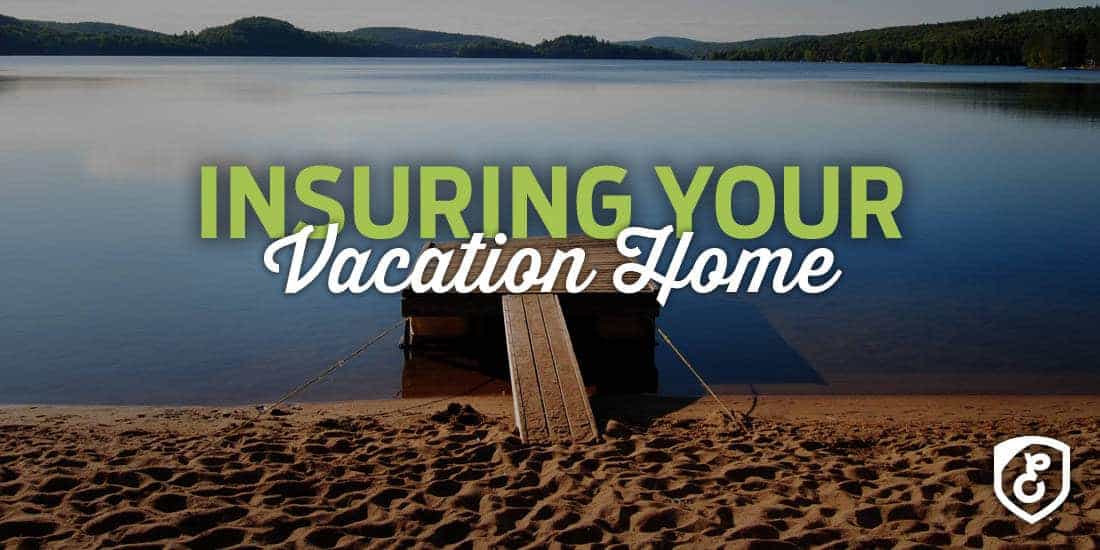
Insuring Your Vacation Home
June 7, 2016
Share:
Cottage season is upon us! Yes, it’s that perfect time of year again, when you can gather up the family and head to the cottage for the weekend. The cottage means swimming in the lake, delicious BBQs, board games around the dinner table and enjoying the nice weather. Before you get caught up in the bliss, it’s important to review your insurance coverage as you prepare for your weekend away.
The Basics
Since your vacation home is not considered to be your primary residence, the type of coverage you require depends on how you plan to use your second home. Will you visit on the weekends or live there full time for several months? Are you planning on renting it out when you aren’t using it?
It’s also important to note that you can have your seasonal residence added to your primary home insurance policy, instead of listing it on a second policy. Whether you decide to do this will depend on how you use your vacation home and the type of coverage you will require.
Types Of Coverage
- Third-Party (or Personal) Liability Coverage – This type of coverage protects you in the event that someone is injured on your property, like during a slip and fall incident. Liability Coverage will also protect you if a fire starts in your vacation home and spreads to other properties in the neighbourhood.
- Contents Coverage – Contents coverage protects belongings that are kept on the seasonal property, usually year round. These items are not covered under your primary home policy, however items that travel back and forth between the two locations are covered under your primary home policy. Remember to keep an updated inventory of the items kept at your vacation home, especially ones of significant value, in order to ensure that they are written on the insurance policy.
- Replacement Value Coverage – Replacement value refers to the exact cost to replace your home, without deduction or depreciation. You may want to check with your broker to make sure you have Replacement Value Coverage instead of Actual Value Coverage, which covers you for the current market value of the house which is typically less than the cost to build it.
Possible Exclusions
Many people believe that the coverage on their primary residence carries over to their vacation home, but that is not always the case. These two residences can be on the same policy, but will have different coverage amounts based on how often you reside there and the property itself. In some cases, it is better to have your primary home and your vacation home insured separately, because your seasonal home will spend several months unoccupied. There are also several exclusions you want to be aware of when you are insuring your seasonal residence. Some of these exclusions include,
- Roof Damage or Collapse – Snow and ice build-up often occurs during the winter months, and since you aren’t living in your cottage year round, proper roof clearing doesn’t happen regularly. As a result, most insurance companies do not provide coverage for damage to the roof or collapse.
- Break and Enter – Vacation homes are often the target of burglars because they remain empty for much of the year. So while the property damage of the break-in may be covered on your insurance policy, any stolen objects may not be covered.
- Sewer Back-Up – In the event that your sewer decides to deposit an unsightly mess onto the floors of your house, remember that you may not be covered for the damage that results. This is because you don’t live in the house full-time, which could have prevented the accident.
- Outdoor Furniture and Fixtures – Outdoor decor and furniture is considered commonplace in seasonal residences. However, damage can occur to these objects from weather conditions such as high winds and snow, and generally these types of damages are not covered.
- Outdoor Buildings and Structures – Your shed, deck or dock may not be covered on your insurance policy. Make sure you check with your broker to ensure that these structures are covered under your vacation property.
- Renting Out Your Vacation Home – Do you rent out your vacation home when you’re not staying there? If so, you need to look into rental insurance which can help protect you against damage caused by renters which wouldn’t be covered under a regular home insurance policy.
Want to take a second look at your coverage? If you have any questions about the process to insure seasonal residences or you want to know if your policy covers you against these exclusions, you can contact us at 1-888-298-7343. Our insurance brokers can help make sure you have the proper amount of coverage for your home away from home.








